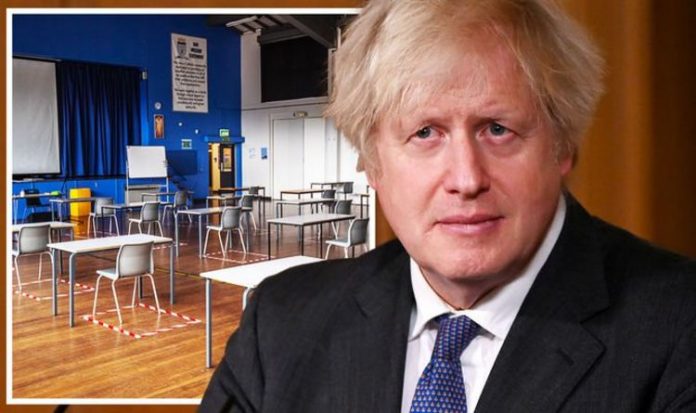Boris Johnson has been spared an immediate Tory revolt over cuts to Britain’s overseas aid budget.
Speaker Sir Lindsay Hoyle told the House of Commons on Monday afternoon a Conservative rebel amendment designed to reverse the Government’s cuts to overseas aid had not been selected for consideration.
The decision came after the Prime Minister hit the phones on Monday morning in a last-ditch effort to avoid a major Commons defeat at the hands of 30 or more Conservative rebels.
The Standard learned the Prime Minister was calling some Tory MPs in person to ask them not to back a rebel vote that would force the Government to restore spending to the legal minimum of 0.7 per cent of national output.
The PM’s personal intervention came before Speaker Sir Lindsay pulled the plug on Monday night’s landmark vote.
Speaker Sir Lindsay Hoyle, in a statement, said the Tory rebel amendment on overseas aid “may not be debated” on Monday as it is “outside the scope of the Bill”.
However he rebuked ministers for not giving the Commons the opportunity to vote on the decision to suspend the 0.7% goal, which was enshrined in legislation.
He indicated he would consider applications for an emergency debate on the issue on Tuesday.
He said: “As we all know, the Government has, through our standing orders, significant control over the business the House considers on any given day, and its control is particularly strong when it comes to the initiation of public expenditure.
“Under the International Development (Official Development Assistance Target) Act 2015, it is the duty of the Secretary of State to ensure that the target for official development assistance to amount to 0.7% of gross national income is met by the United Kingdom each year.
“Up ’til now, however, the House has not had an opportunity for a decisive vote on maintaining the UK’s commitment to the statutory target of 0.7%. I expect that the Government should find a way to have this important matter debated and to allow the House formally to take an effective decision.”
Andrew Mitchell, the former Tory chief whip and ringleader of the rebels, responded saying the Government frontbench was treating the House of Commons with disrespect.
“They are avoiding a vote on the commitments that each of us made individually and collectively at the last general election, on a promise made internationally, and in the opinion of some of Britain’s leading lawyers the Government is acting unlawfully.
“Had we secured a vote on the new clause tonight, I can assure the House it would have secured the assent of the House by not less than a majority of nine and probably of around 20 votes.
“In the week of the British chairmanship of the G7, the Government’s failure to address this issue will indisputably mean that hundreds of thousands of avoidable deaths will result.”
Mr Mitchell earlier told the Standard: “This aid cut is immoral, unethical and almost certainly illegal – so Members of Parliament on all sides feel strongly that it must be put to a vote.”
Chancellor Rishi Sunak was calling potential rebels on Sunday, but leaders of the revolt said MPs were standing firm.







